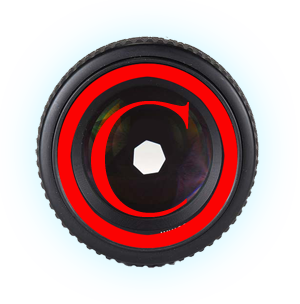
In a 3-0 decision by the 9th U.S. Circuit Court of Appeals on Friday, the court said that companies that make and sell software can use shrink-wrap, or in the case of online downloads - click-to-continue licenses to preclude "owners" from the re-sale of the license.
The ruling seems to be the first ruling by an appellate court that specifically focuses on the sale (i.e. the sale of a license) to a party beyond the original purchaser, and the terms of that sale affecting the ability to re-sell it later.
How can this be, you might ask? Well, back in 1909, the "First Sale Doctrine" allowed the owner of a legitimate copy of a copyrighted work to sell/transfer ownership of that particular copy without the authorization of the copyright holder. The court ruled "The first sale doctrine does not apply to a person who possesses a copy of the copyrighted work without owning it, such as a licensee..." This has the potential of having a substantial impact on photographers' licensing and contracts.
How?
As it stands, if you have, say, a photographer's book, you own that physical book, and you can tear out the pages, frame them, and then re-sell each of those framed "prints" without the photographers permission (generally speaking.) There has been some controversy in the past about this. This, however, would be a case where you possessed a physical copy of the work, and the first sale doctrine would apply in most instances.
In the past, I have purchased software from bankrupt companies, and had the licenses transferred to me. Having the bankruptcy executor sign a document stating that they represent the bankrupt company worked, and in cases where, say, I wanted to sell a piece of my software to a colleague, I would execute an agreement to that effect. For example, Adobe has guidelines and policies as it regards a transfer, and the documents they require - here.
However, if you posses a license to the work, according to this new ruling, you could not transfer it without something in writing. This certainly can affect contracts. For example, in my contracts for advertising/commercial work, I have this language:
This Agreement shall not be assignable or transferrable without the prior written consent of Licensor and provided that the assignee or transferee agrees in writing to be bound by all of the terms, conditions, and obligations of this Agreement.This is an important clause. Because, if your images are contained on a client's hard drives, no doubt, the language in the sale of the company as it pertains to intellectual property likely reads something like this:
Company X hereby transfers all right, title, and interest to all trademarks, patents, copyrights, without restriction...."Thus, the aquiring company could wrongly believe they own copyright to the photography that is yours, on their hard drives. As such, the clause in my contracts is critical to protect me.
The software company that was a party to the lawsuit, Autodesk, had a significant number of restrictions on the sale or transfer - they hard to provide written consent, and further, under no circumstances could the license be transferred outside the Western Hemisphere.
While the company who lost in this case has vowed to appeal, the 9th circuit had overruled a lower court who ruled that the when a purchaser is allowed to keep the work they purchased as the original purchaser, they have the right to re-sell it at their discretion. The American Library Associiation and eBay took a position counter to the ruling of the court, arguing that other copyright holders (among them, photographers, book authors, etc) could follow suit. The court acknowledged as much, but left legislative solutions to that, noting the government should modify copyright law "if it deems these or other policy considerations to require a different approach." With Congress introducing bills to protect fashion designs (as reported here and here in the Washington Post) which are currently not protected by copyright at all, it seems that copyright laws may be in for a substantial revision in the near future.
You can read the courts opinion here (as a PDF).
Please post your comments by clicking the link below. If you've got questions, please pose them in our Photo Business Forum Flickr Group Discussion Threads.
Fascinating, John.
ReplyDeleteSince going digital back in the 1990s I've sold (mostly) only licenses, and sometimes other incidental services, but rarely products. My biz holds an explicit ruling letter from NYS that clarifies the non-sales-taxable status of all this.
Your reporting has me wondering if my invoicing should specify and sell an actual digital copy of the file.
Gratefully,
Andre